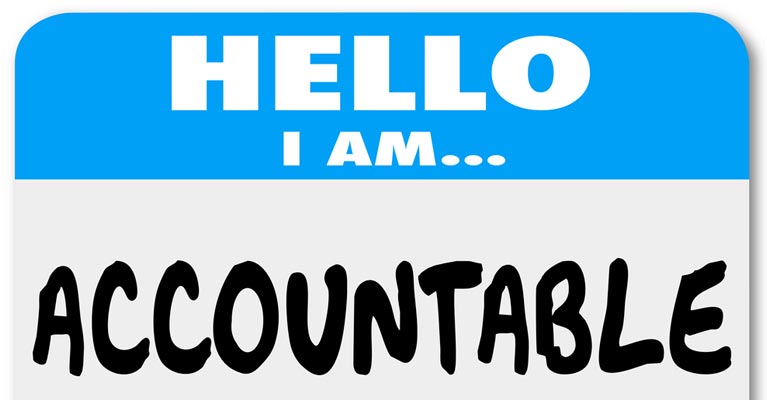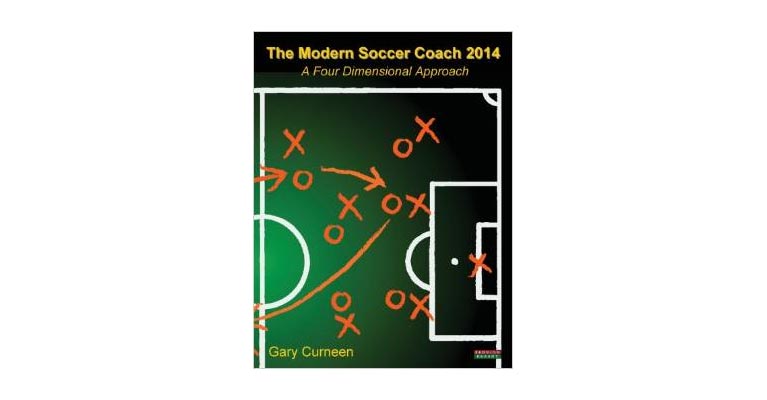Tune in to Match of the Day on a Saturday night (if you happen to be English) then you’ll likely hear the same tired excuses from managers after a tragic loss. It was the referees fault…the fans aren’t behind us…the players played badly. It never seems to be the manager’s doing. Here is coach Gary Curneen on the tragedy for coaching that is the ‘Blame Game’.
Have you ever watched a Premier League team on the wrong end of a defeat and wonder what the manager would say after that performance? As coaches, we seem to constantly play “what would I do in that situation” and with good reason. We may not be fortunate enough to operate in front of 60,000 passionate fans every week, but we all share similar game experiences that the top managers do.
Losing in a variety of different ways seems to define coaching, so we all look on to see how the best in the business deal with it. However, rather than getting an education on leadership in crisis, there seems to be a common theme trending in today’s post-game interviews.
After a defeat, the ‘blame game’ has developed in the Premier League almost as fast as a Chelsea counter attack and coaches are using the media more than ever today to push blame and responsibility far away from their technical area. There are a number of ways coaches are deflecting attention away from a defeat after a game:
Blame Your Players:
Although more difficult in the modern game, this tactic is used by managers who have recently taken charge of a team and have to send messages to the chairman that the team needs strengthening in certain areas. Jose Mourinho constantly used this form of deflection last season when he was crying out for a center forward and, more recently, Louis Van Gaal has been successful with it at Manchester United.
Does it work? Of course. Diego Costa, Di Maria, and Falcao have all joined the Premier League in recent weeks but it does come with risks. It can only work once and it puts the pressure right back on the manager – albeit with a world-class player or two to help you out.
Blame The Ref:
This is the oldest trick in the book and one that I wish we could see the back of as soon as possible. Teams who are at the bottom half of the league and cannot seem to “catch a break” most commonly use it. Unfortunately worldwide culture embraces this get-out clause and has put referees in an almost impossible position.
A refereeing decision can cause momentum to change in a big game, no doubt about that. But surely the best players in the world are more than equipped enough to deal with this and stay in the game.
Blame The Fans:
Not a very common route to take, but it takes a very brave coach to point a finger at the fans. Alan Pardew is the only coach who I can remember that has used it in recent years, although I’m not sure why football’s most passionate fans make their way to watch his team every week.
You could accuse them of putting more pressure on the players, going quiet, singling out a player, or not staying for the duration for the game. But most coaches do not use it for a good reason.
Blame Your Opponents:
Arsene Wenger started this trend a few years ago and, after referees, it has become a huge deflection tactic in today’s game. Wenger was always critical of teams who relied on physical power against his “footballing side”. Bolton and Stoke were always highlighted for ‘roughing up’ the talented players. This deflected the fact that Arsenal could never prepare or alter their game-plan to accommodate teams of supposedly lesser abilities.
Today coaches have extended to the ‘parking the bus’ accusation. Just last week Manuel Pellegrini criticized Mourinho for having the audacity to defend for long periods of the game against his star-studded Manchester City team.
Why Blame?
With so many different variations, why do so many elite coaches feel the need for deflection at this level? In my opinion, it’s very simple really. If they do not, maybe they feel that sooner or later (and it’s usually sooner in today’s football climate) all roads will lead back to themselves. Therefore, the quicker they can get out of the spotlight, the stronger their position as a coach.
The second, and most surprising reason, is that it actually works. With cameras in every angle of every ground and top level analysis from experts like Gary Neville at Sky Sports and Gary Lineker at BBC, it is hard to fathom that the old “look over there!” trick would be effective as an escape route for Premiership coaches. But it is. And it hurts the future of our game. We cannot talk about the importance of professional players setting an example for young kids yet allow coaches at the highest level to set this standard for future coaches.
So how do we change it or do we simply concede that it is part of the modern game?
The truth is that until we stop accepting it, we can keep expecting it. You do not see NFL or NBA coaches using the same tactics after a defeat here in the US. Those coaches take ownership for the preparation and execution of their teams and rather than weakening their position, it strengthens it.
The word ‘We’ is commonly used by those coaches and players respect the fact that the coach stands by them. There is certainly more to gain than lose with this approach. If more coaches accept responsibility, more players will. And if more players accept responsibility for their development, we will have more committed teams who will be able to deal with setbacks and respond to pressure in the right way.
It may sound idealistic but let’s remember, it has worked before with the greats. Brian Clough never criticized a referee, Sir Alex Ferguson never criticized his players, and both Sir Bobby Robson along with Bill Shankly always gave the opposing team credit for a good performance.
Yes, most of the above managers worked in a much different era. Yes, pressure was not what it is today. But both players and coaches took much more responsibility for their performances and, as a result, the fans stood by them both through the tough times. A coincidence? I don’t think so
“The Modern Soccer Coach: A Four Dimensional Approach” is available on Amazon, with more details about the book here: http://www.bennionkearny.com/The-Modern-Soccer-Coach-2014-Gary-Curneen-Book-eBook.htm





